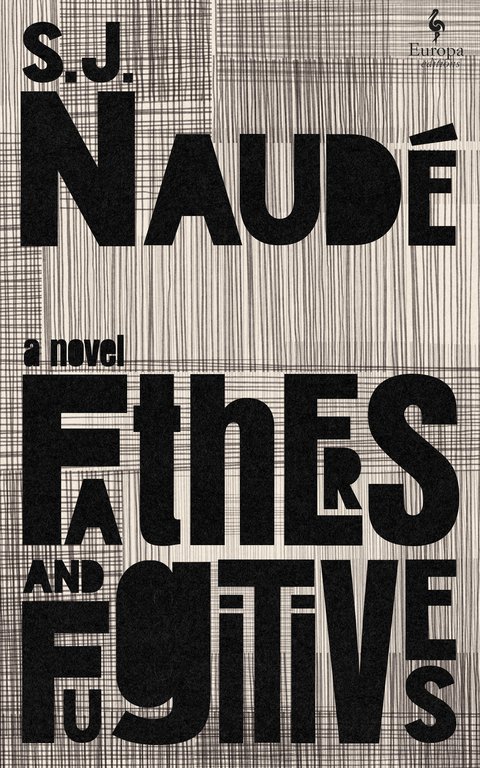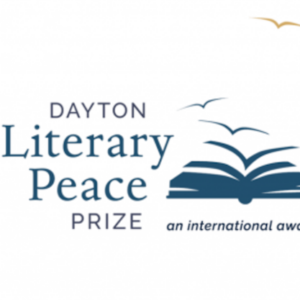
Daniel is sitting in front of his computer. He wants to get up to turn down the thermostat—it’s too hot in here—but first he needs to complete the paragraph he’s writing.
Oliver approaches soundlessly from the kitchen, stands next to him. “So,” he asks, “do you enjoy writing?”
At first Daniel wants to change the subject casually, but then replies all the same. “No, writing fiction is a disruptive compulsion. The last refuge of someone who cannot do anything useful.” Daniel considers for a moment. “The desperate search for a gap, a chance. The taking of unquantified risks.”
Oliver doesn’t seem to altogether grasp Daniel’s response. “But I must encourage you! Your story is, I think, noble! It will become a classic document! And may many more great works emerge from your pen!”
Daniel smiles mechanically at Oliver’s stream of vapidities. Though perhaps no more vacuous than his own somewhat inflated reply of a moment ago. Oliver’s eyes are wide; he’s in the manic mood that sometimes takes hold of him while watching movies. This is the first time that Daniel has found something disturbing about his presence.
“I appreciate your optimism,” Daniel says drily. “But nobility? To me it’s a cold-blooded task. You forfeit a lot of your humanity in the process.”
“And where does it all come from?” Oliver’s eyes remain wide. Daniel looks through the window at the buildings of the City, reflects for a moment. “Writing is in the overflow, in what follows when you think you’ve written yourself empty. When you’ve started thinking: Now I’ve got the story. When you’re on the point of turning your back on the screen. Then it starts.”
It’s getting hotter and hotter in the room. Daniel feels sweat beading on his forehead. He turns to Oliver, who is frowning as if he’s been subjected to the most cryptic utterance in the history of human discourse. His face is also shiny with sweat. Daniel wonders what Oliver sounds like when he’s writing about cinema. When he’s talking about it, his judgements are enlightening, if overexcited. Conversing with Oliver on other topics often produces an awkward caricature of a conversation.
Daniel can see that Oliver is waiting for a more palatable pronouncement. “In any case,” he continues, “you may be surprised at how nonverbal the process actually is.” Daniel shakes his head, as if trying to banish the subject. “Ignore what I’m saying. I’m being evasive. It’s not really possible to verbalise this compulsion.” He taps the computer screen. “What I do know is that sometimes an adjustment here, in the real world, can change everything there.” He points at the screen. “I don’t think the opposite is true, though.”
This doesn’t improve matters. Oliver is towering over him, suddenly startlingly demanding. Daniel continues helplessly. “Perhaps writing is best described as a zero-sum game. After all the effort, all the sentences, you always end up where you began. Like some empty Japanese ceremony. Meaning being as fleeting as steam.”
Oliver’s attention wanders. He is now focused on documents that Daniel has carelessly left lying open on the desk next to the computer. On top of the pile is a bank statement and, next to it, a printout of Daniel’s latest tax return with details of his income. “Excuse the mess, Oliver.” Daniel gathers the papers, puts them away in a drawer.
“Listen, I wish you the creativity of a giant! But I think you need peace,” Oliver says and retreats to his and Yugo’s bedroom, closing the door with a gentle click.
Daniel sits back in his chair. His concentration has been scattered beyond recall. He thinks back to two or three days before. He’d taken a shower after his and Oliver’s sweat had mingled between the sheets. Yugo had gone out, mumbling some pretext or other as to where. With a towel around his waist, Daniel had come upon Oliver standing in front of his computer, scanning the text on the screen.
“I’m just looking,” Oliver said. “I can’t read your language.” But when he walked off and Daniel closed the document, he noticed Google Translate open in the background. It was set to Afrikaans to Serbian. And there it was: the first page of Daniel’s text, copied into the left panel. To the right were paragraphs in Cyrillic. Heaven knows, Daniel reflected, how the American translation machine had mauled his long Afrikaans sentences. He could reverse the process, feed the gibberish back in and have it translated back to Afrikaans. Then he could have the product translated into Serbian again. And so on, to and fro. The sentences would float further and further into the unknown, the paragraphs becoming progressively more surreal. Eventually, he’d thought, he could bring into being an Afrikaans text that has next to nothing in common with his original sentences.
*
It is the fourth week of the Serbs’ sojourn. Daniel is lying in bed with a sleeping Yugo, his body a loose heap of limbs. Daniel takes Yugo’s hand, presses it to his own mouth. Yugo’s fingers smell of vegetables and spices from the lunch he prepared earlier. Today they were different with each other: more intimate and trusting, more tender. Daniel doesn’t want to move an inch, but he has an appointment with his friend Mirko the architect. The intercom buzzes—it’s Oliver, Daniel knows. He didn’t take a key. Daniel wakes Yugo gently. The Serb smiles sheepishly and stumbles half asleep to his own room to get dressed.
He meets Mirko in the café of the British Film Institute on the South Bank, tells him about the latest development with the Serbs.
His friend shakes his head. “In your flat? Just you and them? I wash my hands of it. Don’t say I didn’t—” “Caution me? That’s the word you keep using. A refrain. How does that help me?” Daniel says. “It’s as if you know them, as if you’re withholding some secret.”
Mirko compresses his lips. “I have your interests at heart, believe me.”
“What kind of prejudice have you got against your countrymen? Is it a class thing? Is that why you don’t want to meet them?”
Mirko is still shaking his head. He pushes his wine away. “Daniel, dear Daniel. What have you got yourself into?”
Daniel drains his half-glass of wine in a single gulp, asks for the bill.
*
When Daniel gets home, the Serbs are gone. The bed in their room is neatly made. Their bags are gone, and no sign of their presence remains, no letter or note. Nothing. Or, no, there is something on the dining-room table after all. A DVD. The Werckmeister Harmonies, a Hungarian film about an isolated village that is visited by a circus exhibiting a dead whale.
The Serbs have left no new contact details. The numbers saved in Daniel’s phone are linked to temporary British SIM cards. He tries Oliver’s number straight away. It no longer functions. He has only an email address for Yugo, and the morning after their departure he writes to him: Don’t you say goodbye? It bounces back.
The next month Daniel spends largely in front of his computer screen—the cursor constantly blinking in the same place mocks him, his hands are paralysed. Suddenly it is spring, he realises one morning; blossoms have appeared overnight. He opens a window, inhales the city’s scents.
On a whim, he picks up his phone, scrolls down to his father’s number. The last call (made, not received, like all the calls in the log) was almost a year ago, he notices. He imagines the old man in his enormous suburban house in Cape Town, alone amid Daniel’s dead mother’s art collection. Cape Town’s autumn breezes would be moving across the vast and silent lawn, making the water in the pool, which no-one has entered for a quarter-century, shiver. He scrolls down further, to his sister’s number. She lives an hour away from his father, in the gentle hills of the winelands. She’s harder to picture. Dressed in linen, Daniel imagines, make-up matched to the season’s colours. In the cool leather seat of a car, or having breakfast among vineyards. He doesn’t call anyone, puts the phone in his pocket.
He leaves the flat, goes to see a new exhibition at the Tate Modern. French pop art from the sixties and seventies. It’s feeble—the one genre in which the Americans surpass the continental artists. At Borough Market he buys ingredients for a solo meal, tries preparing one of Yugo’s recipes from memory. Then one day he goes to the nearest Sainsbury’s and buys the kind of stuff that Yugo would have bought—processed meat and sausages, sliced sweetmilk cheese, cans of sliced peaches in syrup probably sweet enough to scald your throat. Daniel unpacks it all in rows on his dining-room table. He eats none of it, dumps it in the bin.
__________________________________
From Fathers and Fugitives by SJ Naudé. Used with permission of the publisher, Europa Editions. Copyright © 2024 by SJ Naudé. Copyright 2024 by Michiel Heyns.


